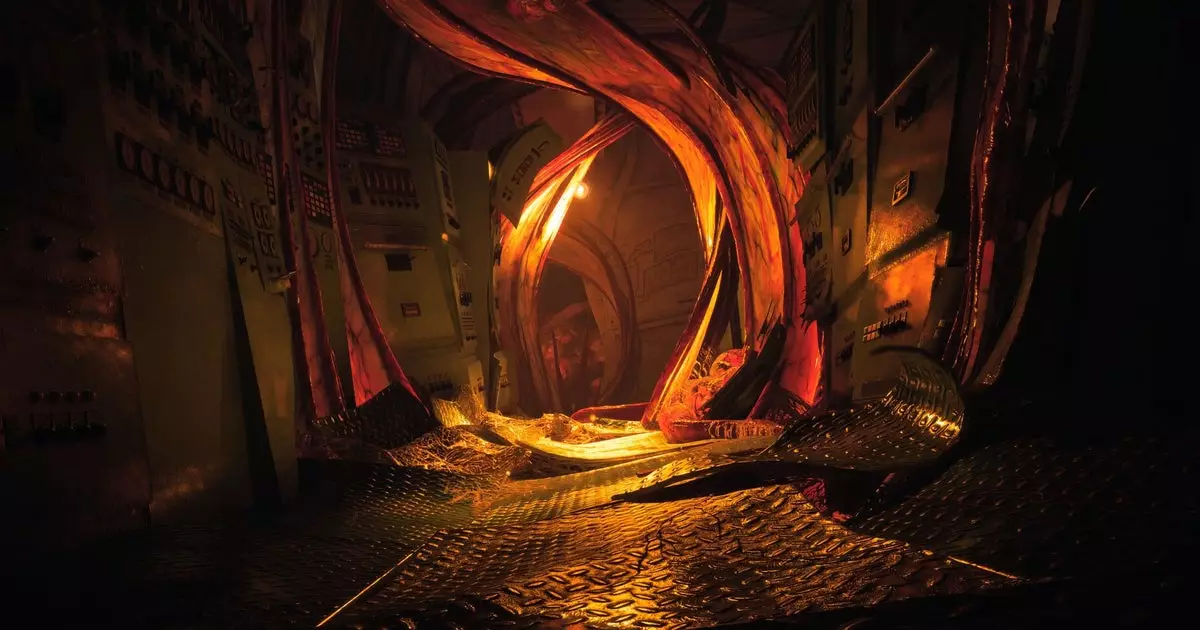The recent upheaval at The Chinese Room signifies more than just a strategic shift; it embodies the resilience and entrepreneurial spirit that continue to shape the gaming landscape. After years of corporate dependency—initially under Sumo Digital and subsequently Tencent—it is invigorating to see a storied developer reclaim its autonomy. This move not only demonstrates confidence in their creative potential but also a compelling desire to forge a distinct identity in an increasingly homogenized market. Their decision to undertake a management buyout, facilitated by Hiro Capital, underscores a broader industry trend where developers seek control over their vision, challenging the narrative that financial backing invariably compromises artistic integrity.
Such bold moves often come with turbulence—layoffs, uncertain futures, and internal struggles—but ultimately, they lay the groundwork for preservation of authenticity. For The Chinese Room, it’s about resurrecting their pioneering spirit from the days of Dear Esther and Amnesia: A Machine For Pigs, dictating their own destiny rather than being at the mercy of corporate interests. When a developer of their caliber chooses to go independent again, it signals a belief that innovation thrives not in conformity but in liberation—an invigorating hope for fans craving original experiences that challenge conventions and evoke genuine emotion.
From Modders to Masters of Atmosphere: The Chinese Room’s Creative Evolution
Founded by passionate Half-Life 2 modders, The Chinese Room’s trajectory underscores the importance of grassroots beginnings in the industry. Their seminal work, Dear Esther, revolutionized environmental storytelling, blending narrative and environment into an introspective experience that refused to rely solely on gameplay mechanics. This pioneering approach established them as leaders in atmospheric, emotionally driven titles, emphasizing mood over traditional game loops. Their subsequent collaborations—Frictional’s Amnesia sequel and Sony’s cinematic Everybody’s Gone to the Rapture—cemented their reputation for crafting evocative worlds that linger long after the PlayStation turns off.
What stands out in their journey is their relentless pursuit of uniqueness, even amid corporate ownership. Despite their acquisition by Sumo Digital and later Tencent, their creative identity persisted—until recent shifts toward development services and layoffs. These changes, while unfortunate, reveal a crucial truth: true artistic independence often requires sacrifice and resilience. The decision to buy back their independence signals a conviction that their future success hinges on original projects, fueled by passion rather than financial pressure.
Challenges and Opportunities of Going Indie Again
The path to independence is fraught with hurdles, from financial constraints to the loss of skilled staff—as evidenced by the layoffs reported post-MBO. However, this decisive move offers unparalleled opportunities. Freed from the confines of third-party mandates, The Chinese Room can now fully explore narratives and gameplay mechanics aligned with their artistic vision—something that was increasingly difficult under corporate structures prioritizing commercial success.
Their upcoming projects, shrouded in secrecy, hint at a future rooted in innovation and experimentation. The notion of a subterranean hellfactory game, as casually mentioned, exemplifies their renewed appetite for the bizarre, the atmospheric, and the profoundly original. It’s a bold statement: that they are prepared to take risks, embrace unconventional ideas, and forge new paths in storytelling.
Furthermore, their willingness to collaborate with other independent studios once again encourages a more dynamic, community-driven industry. By stepping into the role of autonomous creators, they can contribute to diverse voices and groundbreaking experiences—fostering a richer gaming ecosystem that values artistic expression over mere commercial metrics.
The Industry’s Broader Implication
The Chinese Room’s renaissance is emblematic of a larger trend within gaming: the desire for authenticity and control. As corporate consolidation intensifies, smaller developers are increasingly motivated to reclaim their independence—not just for creative freedom, but to fulfill their core purpose of storytelling and emotional engagement. Their struggles and triumphs serve as a blueprint and a rallying cry for other studios contemplating similar moves.
This development underscores that the gaming industry is at an inflection point—where resilience, innovation, and authenticity are becoming the currency of success. The Chinese Room’s story proves that even amidst layoffs and financial uncertainties, a committed team can regain the power to craft meaningful worlds. Their journey remains a testament to the indomitable spirit of independent creation—an inspiring blueprint for a future where artistic integrity can thrive in tandem with commercial viability.

